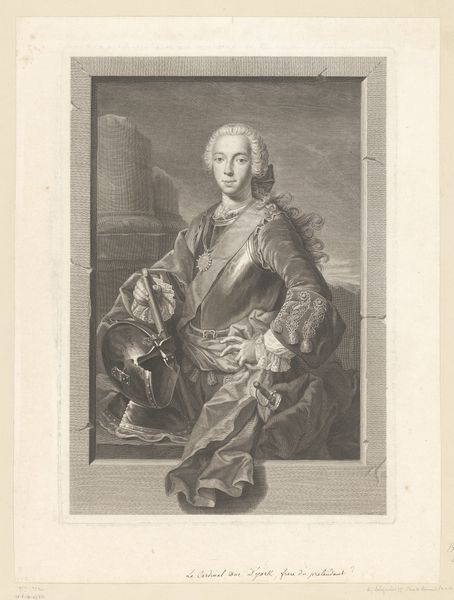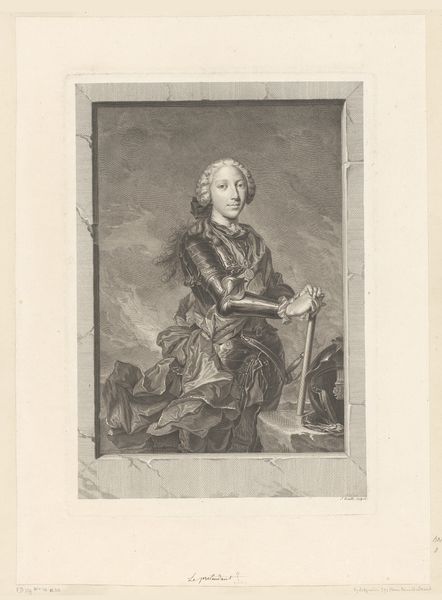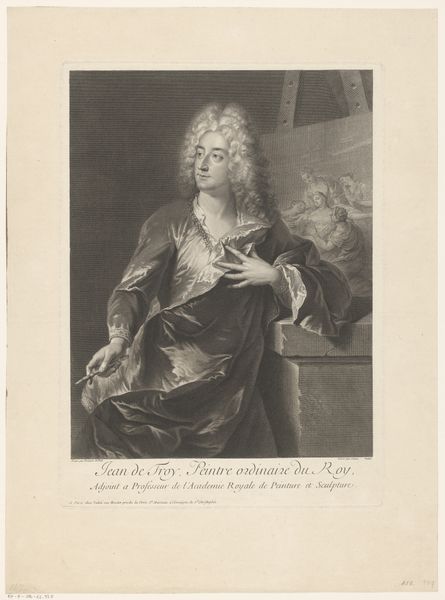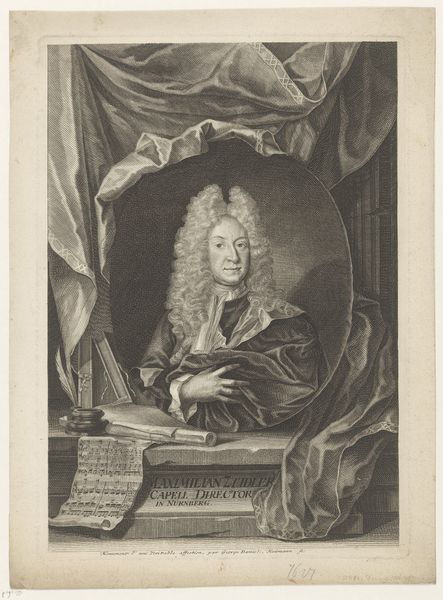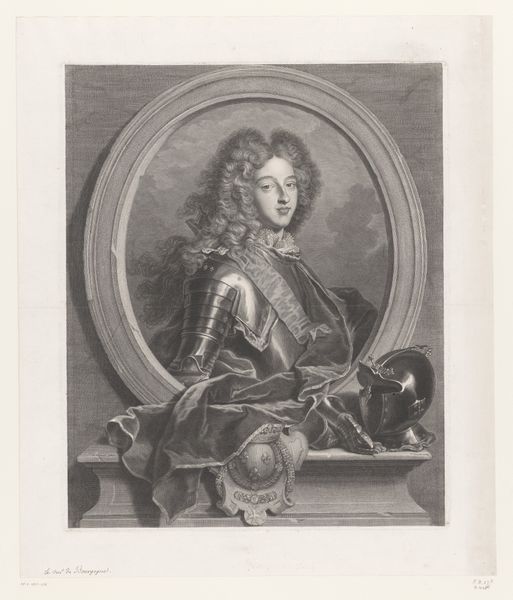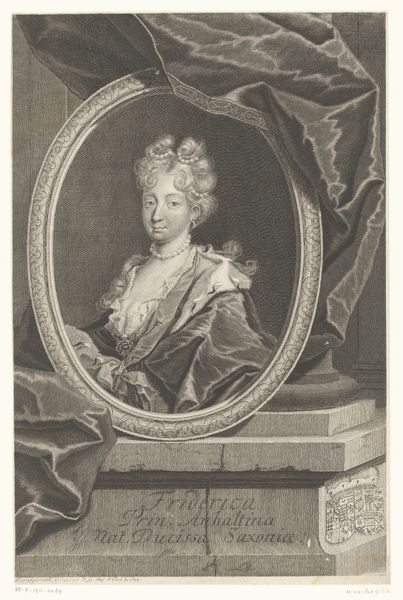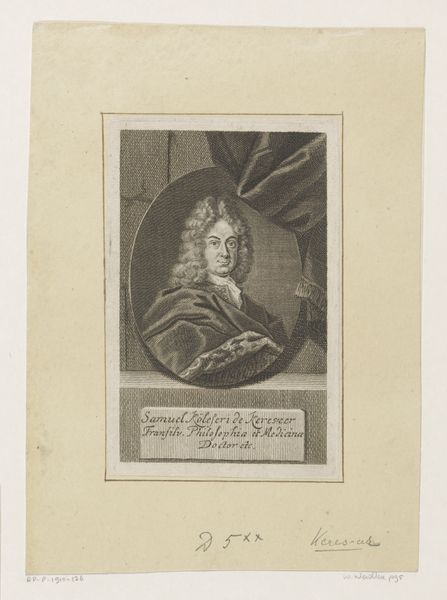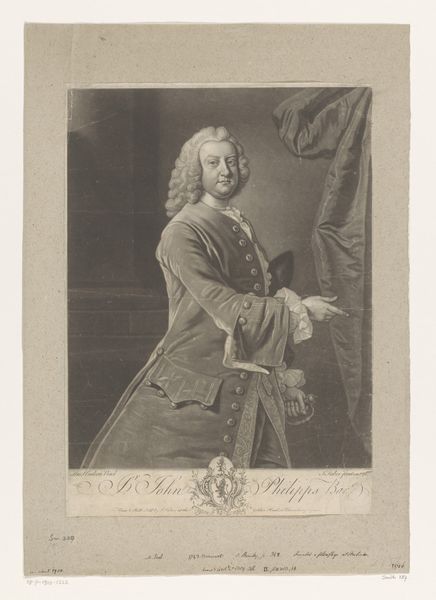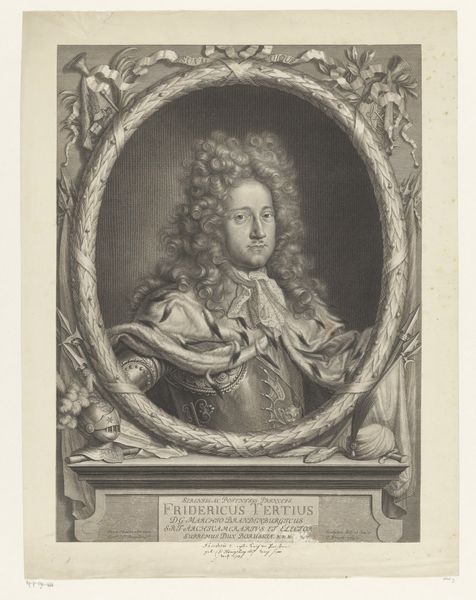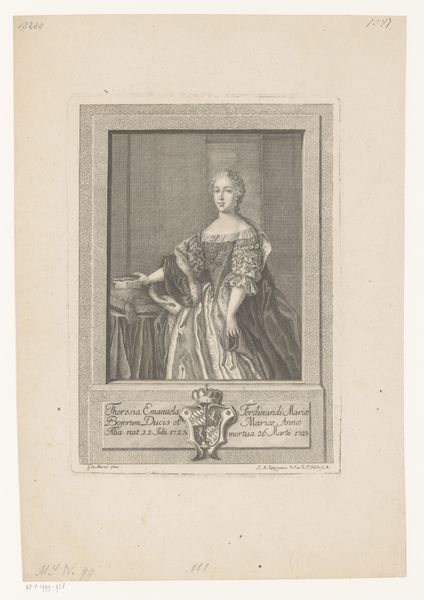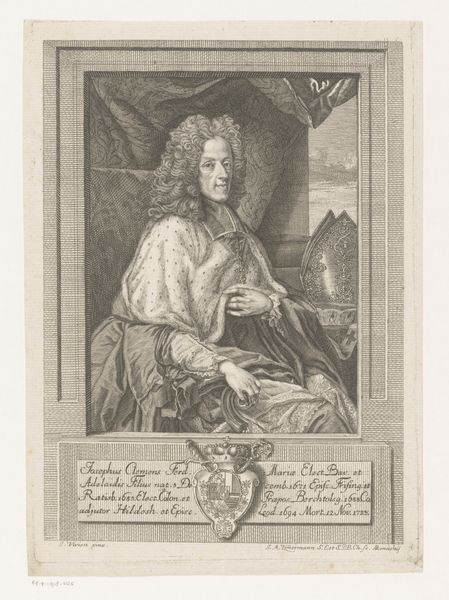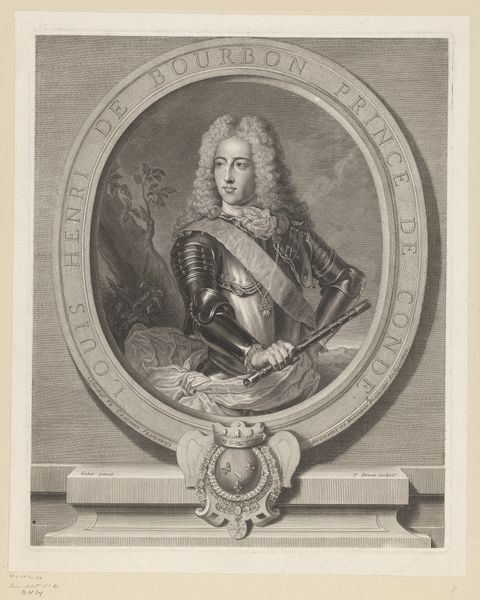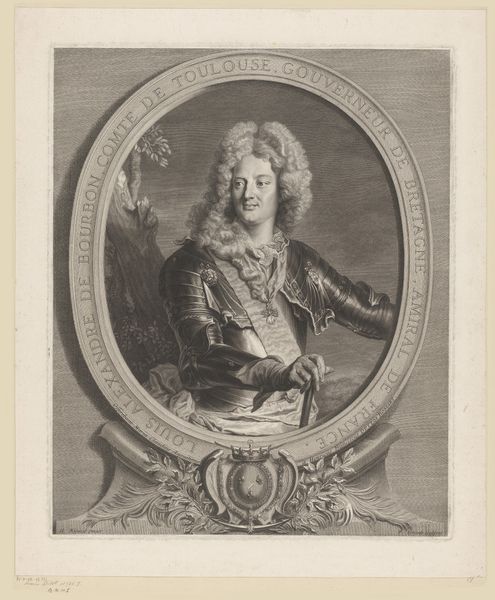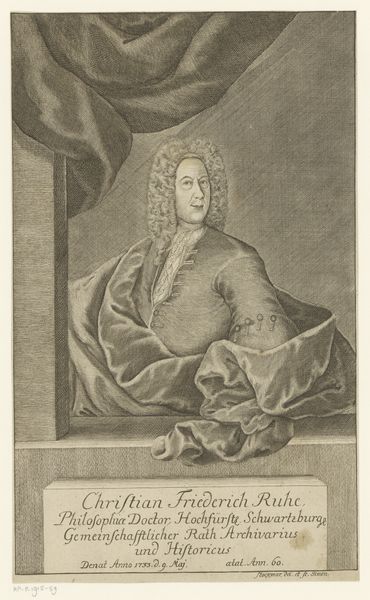
engraving
#
portrait
#
baroque
#
history-painting
#
engraving
Dimensions: height 250 mm, width 252 mm
Copyright: Rijks Museum: Open Domain
Editor: This engraving, "Porret van Richard Greville Verney," dating from around 1690 to 1742, gives such an impression of cultivated intellect. The young man points to a globe while holding a map. How should we interpret its symbolic elements? Curator: Notice how Verney is positioned with objects signifying knowledge and worldly ambition. The globe is not merely a geographical tool but a symbol of power, dominion, and a burgeoning colonial era. Consider the map in his hand – a fragment of understanding, perhaps, but also an invitation to explore and conquer. What does this juxtaposition tell you about the subject’s intended persona? Editor: I guess it’s presenting him as an explorer and a scholar... even though he seems so young! Is this perhaps meant to imply destiny or inheritance? Curator: Precisely. The Baroque era thrived on allegory. The symbols create an identity, suggesting not just personal traits but also social and political expectations. What psychological weight does the gesture of pointing hold, connecting the microcosm of the individual to the macrocosm of the world? Editor: That’s fascinating. So the portrait is actively constructing a particular image and conveying a particular message through carefully chosen objects and gestures. I will definitely be seeing portraits in a new light now. Curator: Indeed. Visual symbols echo across centuries, carrying cultural memory and aspiration. By understanding them, we understand the deeper layers of history itself.
Comments
No comments
Be the first to comment and join the conversation on the ultimate creative platform.
